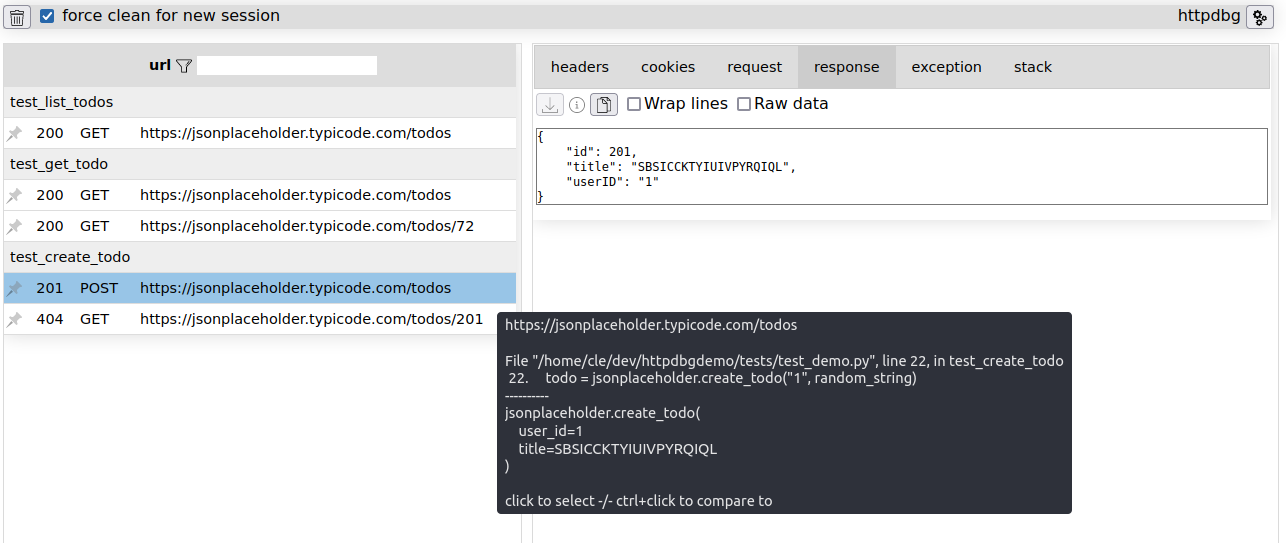httpdbg
Welcome to the httpdbg's documentation!
httpdbg is a tool to trace the HTTP(S) client requests in your python code.

simple
Simplicity is the keyword of httpdbg. It requires:
- no external dependency
- no setup
- no super user right
- no code modification
powerful
Simple doesn't mean basic:
- the HTTP request initiator is reported for each request
integrated
Theorically, all pure python HTTP client libraries are fully traceable by httpdbg.
Some of them have a special integration for more information:
Some extensions are available for different famous Python tools: